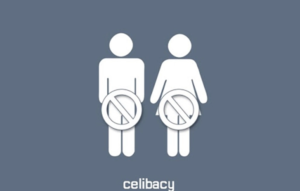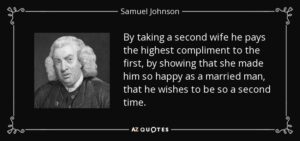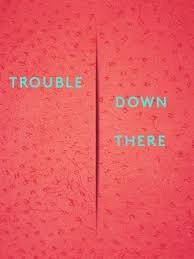Raboyseyee and Ladies,
At 6PM this evening, the heylige Ois and eishes chayil will be joining our dear friends –and more- Lemor and Murry Englard at the wedding of their son Mikey who will be marrying Tyler Schwartz, the beautiful daughter of Yocheved and Marc. And with that we begin by wishing a big mazel tov to Lemor and Murry, to Mikey and Tyler, to Tyler’s parents, and to both extended families. May the new couple be blessed with good mazel, health, and may they merit to enjoy many years of blissful marriage.
Prophecy, Celibacy & Vaginal Illness (you read that correctly)
Here we are back at Parshas Behaloischo -my 13th review of this parsha. As mentioned -mistama several times over the years- Behaloischo was a favorite for all the kids of my generation while playing the game of chumish where the upside-down nun (נ-the Hebrew letter) was worth either 500 or even 1000 points depending on how the rules were set. Land on it, or guess how many pages forward or backward, and one was assured of winning the game. What was happening inside the parsha? At that age who cared? Ober as we got older, certain pisukim and topics were impactful, they stuck with us forever. One such topic covered in the parsha is the unusual episode concerning Miriam, Aharoin, Moishe: What was said, what is written in the heylige Toirah, what Rashi and others say and what real pshat might be. Was Moishe married to a Cushite -maybe a black woman, not that there is anything wrong with that; whether he was divorced from his first wife Tzipoirah? Whether Tziporah was in fact the black woman he was married to? Or, whether he was married to two women at the same time? And was Moishe celibate? Are we talking about Moishe Rabaynu, the fearless leader handpicked by the RBSO to lead the Yiddin out of Mitzrayim and through the midbar for forty years? We are! Does the heylige Toirah mention any of this? It does tell us that he married Tzipoirah – that was way back in Sefer Shmois- and does, at one point tell us that they were reunited after he had “sent her away,” but what that means specifically has been debated for years.

We have previously covered this topic -perhaps even mentioned it more than once- ober, this year as the Ois was reading ahead while the shul was listening to Nosi, and while digging further into the topic, he came across a mamish mind boggling pshat that will likely also blow you away. This raboyseyee is mamish brand-new stuff. Before we get to it, let me preface my words with this: The Ois has gotten into many a heated discussion over license and liberties the heylige Gemora and medrish take with the RBSO’s words as written in the heylige Toirah. The Ois takes the position that the RBSO- Master of the world, Creator of the world, knew quite well how to express Himself. Who are we to suggest that what He had Moishe reduce to writing was then and forever subject to further clarification, and in some instances, interpreted by our sages to mean completely the opposite of what the words translate to on their face? We know with certainty that the heylige Gemora and other exegetes -when they didn’t necessarily like or couldn’t grasp what the RBSO was saying- went about introducing or changing pshat to accommodate their desired interpretation. And with that introduction, let’s mamish get into it and see how one exegete -seemingly- mamish agrees with the heylige Ois. Raboyseyee, this is gold! Let us begin by reviewing the relevant subject matter and pisukim. Says the heylige Toirah in our parsha, azoy:
במדבר יב:א וַתְּדַבֵּר מִרְיָם וְאַהֲרֹן בְּמֹשֶׁה עַל אֹדוֹת הָאִשָּׁה הַכֻּשִׁית אֲשֶׁר לָקָח כִּי אִשָּׁה כֻשִׁית לָקָח. יב:ב וַיֹּאמְרוּ הֲרַק אַךְ בְּמֹשֶׁה דִּבֶּר יְ־הוָה הֲלֹא גַּם בָּנוּ דִבֵּר וַיִּשְׁמַע יְ־הוָה.
Miriam and Aharoin spoke against Moishe because of the Cushite woman he had taken [into his household as his wife]: “He took a Cushite woman!” They said, “Has יהוה spoken only through Moishe? Has [God] not spoken through us as well?” יהוה heard it.
There is no introduction to these pisukim, they begin a new chapter. Ober, just what are Miriam and Aharoin talking about. Ok, let’s unpack what’s going on here by asking azoy: Just what were Miriam and Aharoin talking about? Who is the Cushite woman to whom they are referring? How is Moishe’s marriage to a Cushite woman in the first posik connected to Miriam and Aharoin’s insistence in the second verse that they too were prophets? Why is this mentioned? And why is there double language in that first posik? After telling us that Miriam and Aharoin were talking about the Cushite woman Moishe married, why does it repeat “because he married a Cushite woman?” Does the heylige Toirah repeat itself? In the very same verse, Rashi and others tell us azoy: Miriam and Aharoin spoke against Moishe -as in loshoin horo- because he married a Cushite woman and that’s followed with another quote advising that Moishe indeed married a Cushite woman. What the hec is a Cushite woman?
Shoin, as you can only imagine, these two pisukim caused quite the uproar among many exegetes. In fact, the Abarbenel himself lists ten different questions on this narrative. Over 100 others have chimed in over the years with their analysis of what went down here besides Moishe with the black woman. We shall begin where everyone else does by looking at Rashi -who as aside, knew everything about every everything. Was it the wine? Says Rashi azoy: 1-Miriam and Aharoin were speaking harshly about their brother.
ותדבר. אֵין דִּבּוּר בְּכָל מָקוֹם אֶלָּא לָשׁוֹן קָשָׁה,
The term דבר -whenever used- implies harsh language. The bottom line: Miriam and Aharoin were seemingly bad mouthing -and also gossiping- about their brother Moishe. 2- Rashi tells us that what Miriam and Aharoin were discussing was Moishe’s separation from the Cushite wife he had married. Let’s read the Rashi.
ותדבר מרים ואהרן….. וּמִנַּיִן הָיְתָה יוֹדַעַת מִרְיָם שֶׁפֵּרֵשׁ מֹשֶׁה מִן הָאִשָּׁה? רַבִּי נָתָן אוֹמֵר מִרְיָם הָיְתָה בְצַד צִפּוֹרָה בְּשָׁעָה שֶׁנֶּאֱמַר לְמֹשֶׁה אֶלְדָּד וּמֵידָד מִתְנַבְּאִים בַּמַּחֲנֶה, כֵּיוָן שֶׁשָּׁמְעָה צִפּוֹרָה, אָמְרָה אוֹי לְנְשׁוֹתֵיהֶן שֶׁל אֵלּוּ אִם הֵם נִזְקָקִים לִנְבוּאָה, שֶׁיִּהְיוּ פוֹרְשִׁין מִנְּשׁוֹתֵיהֶן כְּדֶרֶךְ שֶׁפֵּרֵשׁ בַּעְלִי מִמֶּנִּי, וּמִשָּׁם יָדְעָה מִרְיָם וְהִגִּידָה לְאַהֲרֹן; וּמַה מִּרְיָם שֶׁלֹּא נִתְכַּוְּנָה לִגְנוּתוֹ כָּךְ נֶעֶנְשָׁה, קַל וָחֹמֶר לִמְסַפֵּר בִּגְנוּתוֹ שֶׁל חֲבֵרוֹ (ספרי):
And whence did Miriam know that Moishe had separated himself from his wife (for this was the statement she made)? R. Noson answered: “Miriam was beside Zipporah when it was told to Moishe, ‘Eldad and Medad are prophesying in the camp’ (Bamidbar 11:27). When Zipporah heard this, she exclaimed, Woe to the wives of these if they have anything to do with prophecy, for they will separate from their wives just has my husband has separated from me!” In other words: Tziporah herself told Miriam that Moishe was no longer delivering the goods at home -he was abstaining- and not servicing the wife properly, if you chap which he was not because he was a prophet. Miriam then repeated this hot news to her brother Aharoin: Women! As the narrative continues, the RBSO will punish Miriam for gossiping about her brother Moishe, ober that topic for another day.

The focus for today is this: did Moishe separate -as in divorce- his Cushite wife? Is it emes that Moishe separated -but only sexually- from his wife? If yes, did he do so because he was on the receiving end of the RBSO’s prophetic transmissions? Or, was he now in the mood for a lighter skinned woman? And if emes, where is all this found in the heylige Toirah? Well, blow me down. Though the heylige Toirah says nothing of the sort, Rashi -and others- conclude that Miriam and Aharoin’s discussion revolved around Moishe’s Cushite wife – seemingly with black skin- to whom Moishe was married but now separated from. Let’s check out a few more thoughts from Rashi; they are givaldig. Says Rashi azoy:
- All agreed as to her beauty just as all agree as to the blackness of an Aethopian (cf. Sifrei Bamidbar 99).
- That Moishe divorced her.
- Though the Toirah repeats that she was a Cushite woman, there is a good and valid reason for the repetition. What is it you ask? Given that the first part of the posik tells us that Moishe was now separated from his wife, that he divorced his Cushite wife, why it is necessary to state afterwards that he had married her? Says Rashi quoting the Sifrei (Bamidbar 99): You may find a woman who is pleasant an account of her beauty but who is not pleasant by reason of her deeds (conduct); or one pleasant because of her conduct but not because of her beauty. This woman, however, was pleasant in every respect. How that answers the question, ver veyst?
Ober, what the hec is going on here? Did the heylige Toirah tell us that Moishe was separated sexually? That he left his wife? What is Rashi saying here and how is it connected to what the heylige Toirah told us? Nu, the most famous pshat we learned in yeshiva was that the Cushite woman refers to Moishe’s Midianite wife Zipporah, and that Miriam and Aharoin were saying that Moishe divorced her. And taka, says Targum Unkelis azoy:
ומלילת מרים ואהרן במשה על עסק אתתא שפירתא די נסיב ארי אתתא שפירתא דנסיב רחיק.
Miriam and Aharoin spoke about Moishe because of the beautiful woman he had married, for he had separated from the beautiful woman he had married. Where the Targum got this idea, ver veyst, because one thing is certain: the heylige Toirah does not tell us anything of the sort. Yet, both Rashi and Unkelis seem to believe that what Miriam and Aharoin -Moishe’s two siblings- were discussing was Moishe’s separation -AT LEAST SEXUALLY- from his Cushite wife that he had taken. The bottom line: what Rashi and others are saying is that Moishe separated from his wife -sexually- davka because he was a Novee, a prophet, and that prophets need to be clean –as in pure- in order to be on the receiving end of prophecy. Is sexual activity with one’s wife dirty? Boring efsher, but also dirty? Shoin!
What? Moishe became celibate? So says 11th century pshat commentator, יהודה בן שמואל אבן בלעם (R. Judah ibn Balaam) who says this about Moishe, and in general, about sex with women. שהוא התנזר מן הנשים בצפותו לנבואה “he abstained from women (i.e. sexual activity) as he anticipated [receiving] prophecy.” Ober, the question is this? Why would Moishe have to go without? Is celibacy a prerequisite to having the RBSO send over a prophetic transmission? Does sexual activity render one’s brain incapable of receiving the RBSO’s word? Grada, we know that thinking about this activity does crazy things to the brain, but the act itself? Shoin, let’s not answer that.

Did all prophets in the Jewish religion abstain? Should a prophet be celibate? Let’s find out. Two pisukim reader we read how the RBSO appeared to and spoke to Aharoin and Miriam “suddenly” פתאם- Says Rashi -one you likely missed over the years because you were still thinking about Moishe and the dark-skinned girl he married- azoy about the RBSO’s sudden -and without notice- appeared to them:
נגלה עליהם פתאם, והם טמאים בדרך ארץ… להודיעם שיפה עשה משה שפירש מן האשה מאחר ששכינה נגלית עליו תדיר, ואין עת קבועה לדיבור.
He [G-d] revealed Himself to them suddenly, when they [Aharoin and Miriam] were unclean as a result of sexual intercourse… He did this to make them understand that Moishe had acted appropriately when he had separated from his wife, since the Shechinah (the RBSO’s Essence) used to appear to him at all times; no time was fixed for the RBSO and Moishe’s talks. Well, blow me down! Wow! The bottom line: for most prophets –efsher all but Moishe- sex is quite ok. Then again, the idea that a prophet about to communicate with the RBSO should not have recently engaged in sexual intercourse is efsher not so new. It’s not? Where have we seen this before? Let us harken back to Revelation. There Moishe told the people -all the people- to wash their clothes, immediately before the theophany:
שמות יט:טו וַיֹּאמֶר אֶל הָעָם הֱיוּ נְכֹנִים לִשְׁלֹשֶׁת יָמִים אַל תִּגְּשׁוּ אֶל אִשָּׁה.
The Yiddin were commanded to separate from their wives before the revelation at Sinai. The rabbis learn from this that Moishe permanently separated from his wife (our parsha), to be available to speak with the RBSO at all times. And he said to the people, “Be ready for the third day: do not go near a woman.” Wow! Later in Devorim (5:26-27) we find this:
לֵךְ אֱמֹר לָהֶם שׁוּבוּ לָכֶם לְאָהֳלֵיכֶם. וְאַתָּה פֹּה עֲמֹד עִמָּדִי וַאֲדַבְּרָה אֵלֶיךָ אֵת כָּל הַמִּצְוָה וְהַחֻקִּים וְהַמִּשְׁפָּטִים אֲשֶׁר תְּלַמְּדֵם
Go, say to them, “Return to your tents.” But you remain here with Me, and I will give you the whole Instruction—the laws and the rules—that you shall teach them. Many a sage interpreted the RBSO’s instructions to mean that only the people should, or may, return to their tents. In other words- to resume normal activities with their wives as in sexual intercourse. “Return to your tents = permission to resume their sex lives which had been suspended just before the theophany, while Moishe, who is to remain with the RBSO, must remain abstinent indefinitely.
On the other hand, because Miriam and Aharoin were not prophets at the level of Moishe, they did not need to be ready for conversation with the RBSO at any moment, and thus were never required to be celibate. Their lack of understanding of the difference between themselves and Moishe is what led to the RBSO’s rebuke. They should have known that Moishe was on a special track, albeit a shtikel lonely one. The bottom line: most medroshim agree with this line of thinking. They connect Moishe’s separation to sexual activity with his significant other, black or white. It so happens that of the 100 plus exegesis the heylige Ois skimmed through on this topic, many seem to agree that Moishe did abstain sexually in order to be pure and clean and always ready to receive the word of the RBSO. Ober, was Moishe so instructed? Not! The heylige Gemora (Shabbis 87A) quotes a breisa which tells us that Moishe did this –separation thing – on his own volition. Let’s read the shtikel innaveynig. What is a bereisa you ask? Shoin, your parents sent you to yeshiva, spent over $200k to educate you and you don’t know what a bereisa is? It’s a legal or historical document that was not integrated into the Mishneh. These pieces were written by rabbinic scholars who lived during the time of the Mishneh.
אָמַר לְךָ רַבִּי יוֹסֵי: יוֹם אֶחָד הוֹסִיף מֹשֶׁה מִדַּעְתּוֹ. דְּתַנְיָא: שְׁלֹשָׁה דְּבָרִים עָשָׂה מֹשֶׁה מִדַּעְתּוֹ, וְהִסְכִּים הַקָּדוֹשׁ בָּרוּךְ הוּא עִמּוֹ. הוֹסִיף יוֹם אֶחָד מִדַּעְתּוֹ, וּפֵירַשׁ מִן הָאִשָּׁה, וְשָׁבַר אֶת הַלּוּחוֹת.
The Gemora answers: Rabbi Yosei could have said to you: Moishe added one day to the number of days that G-d commanded based on his own perception, as it was taught in a baraisa: Moishe did three things based on his own perception, and the Holy One, Blessed be He, agreed with him. He added one day to the days of separation before the revelation at Sinai based on his own perception. And he totally separated from his wife after the revelation at Sinai. And he broke the tablets following the sin of the Golden Calf. The Gemora explains:
And he totally separated from his wife after the revelation at Sinai. What source did he interpret that led him to do so? He reasoned an a fortiori inference by himself and said: If Israel, with whom the Divine Presence spoke only one time and G-d set a specific time for them when the Divine Presence would be revealed, and yet the Toirah stated: “Prepare yourselves for three days, do not approach a woman” (Exodus 19:15); I, with whom the Divine Presence speaks all the time and G-d does not set a specific time for me, all the more so that I must separate from my wife. And from where do we derive that the Holy One, Blessed be He, agreed with him? As it is written after the revelation at Sinai: “Go say to them: Return to your tents” (Devorim 5:26), meaning to your homes and wives. And afterward it is written that G-d told Moishe: “And you, stand here with Me” (Devorim 5:27), indicating that Moishe was not allowed to return home, as he must constantly be prepared to receive the word of G-d. And some say, a different source indicating that G-d agreed with his reasoning. When Aharoin and Miriam criticized Moishe’s separation from his wife, G-d said: “With him do I speak mouth to mouth, even manifestly, and not in dark speeches; and the similitude of the Lord does he behold; why then were you not afraid to speak against My servant, against Moishe?” (Bamidbar12:8). This indicates that G-d agreed with his reasoning. And now you know!
Of course, we all heard the wild and crazy pshat that has Moishe running off to Cush where he was king and married to a princess and that he never consummated the marriage though he was with her for decades. Mistama she was a Jewish princess; no action! Ober, as does the Pillow Man on TV, the heylige Ois interrupts his own writings to bring you -kimat and mamish verbatim– some of what another exegete had to say about Moishe’s separation and celibacy. He says it’s preposterous and case closed. Let’s read.
Let’s meet Rabbi Joseph ibn Kaspi, a well-known Toirah commentator and author of 31 seforim (read all about him here: Kaspi, Joseph ben Abba Mari ibn (jewishvirtuallibrary.org). He went mamish mishugah over what Rashi and others suggest. His bottom line: most of his comments on the pisukim relating the Miriam, Aharoin, Moishe and the Cushite woman are dedicated to discrediting and ridiculing earlier interpretations. The Ois quotes verbatim only some of what he had to say.
מפליא אני על הקדמונים…, איך נפל לעולם בדמיונם שיפרשו דבר מן התורה הפך מה שכתוב… כי ידוע מה שפרש בזה אונקלוס… מאין לו להוסיף מלות הפכיות, אחר כי אשה כושית לקח, כאלו כתוב בתורה כי אשה כושית שלקח, עזב או הרחיק. ואם היתה זאת כונת נותן התורה למה לא כתב כן, ולמה כתב הפכו… מדוע אונקולוס כחו גדול לעשות זה, או חכמי התלמוד או א[בן] ע[זרא] שכולם הסכימו בזה, ומדוע לא נעשה כן אנחנו, ואיש הישר בעיניו יעשה,[7] עד שנחליף ואהבת את י”י אלהיך, באמרנו—חלילה—ושנאת את י”י אלהיך.
In English: I am amazed by what the earlier exegetes wrote…. How could they imagine that it was permissible to interpret a phrase in the Toirah as saying the opposite of what is written? …For what Unkelis wrote here is well known… What gives Unkelis the right to add words that say the opposite after the phrase “he married a Cushite woman,” as if the Toirah had written “he left or sent away the Cushite woman that he had married”? If that is what the One who gave us the Toirah meant, why didn’t He write that? Why did He write the opposite? …Who gave Unkelis the power to do this—or the rabbis of the Gemora, or ibn Ezra, who all agreed with him? Why shouldn’t we do this, too, and have everyone interpret any way they want, even, G-d forbid, changing “you shall love the RBSO, your G-d,” (Devorim 6:5) to “you shall hate the RBSO, your G-d”?
He’s just getting warmed up, let’s read Veyter: He goes on to reject a common traditionalist justification for interpretations that stray from the words of the heylige Toirah:
ואם תאמר קבל תורה מסיני ומסרה ליהושע והודיעו על פה שכן פרוש זה הפסוק. התשובה, נשוב אל הטענה הראשונה, למה לא נכתב בכתב כמו שהוא הענין, ולא לכתוב מלה שכונה בה ההפך, היקרא פרוש המרת המלות הפך בהפך.
Should you say: Moishe received the Toirah from Mount Sinai, gave it to Joshua, and told Joshua orally that this is the correct interpretation of the verse, my response would be to go back to my first question: Why is the verse not written the way it should be understood? Why is a word written that means the opposite? Is switching the text to its precise opposite called “interpreting” it? He continues and says azoy: The interpretation of “he לקח a Cushite woman” has to be that he “took.” That is the meaning of the Hebrew root ל-ק-ח; the Hebrew root ע-ז-ב is its antonym. This is the agreed-upon understanding in the [Hebrew] language.
ופי’ כי אשה כושית לקח, החזיק, כי כן פי’ שורש הלמ”ד והקו”ף והחי”ת, והפך זה שרש העי”ן והזי”ן והבי”ת, וכל זה הסכמת הלשון
Ibn Kaspi is just as upset about the content of Unkilis and Rashi; he disagrees vehemently with their thinking. He rejects the idea that Moishe was celibate at the end of his life. The Toirah, he writes, does not command us to go against nature by living celibately (לא נצטוינו שננגד ונעיק לפעולת הטבע).
וכל שכן שהמעשה ההוא יותר ראוי לשלמי היצירה ולטוביהם, רצוני אשר החום והלחות גובר בם. ואין ספק כי משרע”ה אדון הנביאים היה מזה המזג, עד שחיה מאה ועשרים ולא כהתה עינו ולא נס לחה,
Such behavior [sexual activity] is especially fitting for the best and most perfect human beings, I mean those whose moist and warm humors are predominant. Doubtless, the humors of Moishe, the greatest of the prophets, may he rest in peace, were of this nature. He even lived for 120 years and yet (Deut 34:7), “his eyes were undimmed and his vigor unabated.” Portraying Moishe as celibate is an insult to him:
ואם הוא ע”ה יהיה פורש לגמרי מאשה כמו שאמרו הקדמונים ועשו על זה אסמכתות מן הכתוב אין בם ממש, הנה לא היה משה האיש המשובח בזמן מעולם ועד עולם,
There’s more: “If we were to say that Moishe, may he rest in peace, completely separated himself from women, as the ancient [rabbis] maintained, basing themselves on groundless “hints” in the text, then he would not have been the greatest man of all generations. Well blow me down. Seemingly, Kaspi was familiar with the heylige Gemora (Sukkah 52a) which tells us azoy:
“כל הגדול מחברו יצרו גדול הימנו—anyone who is greater than another has a greater [sexual] drive.” Wow!!
The bottom line: according to Kaspi, the Toirah is clear and exegetes should not come along and make dramatic changes to fit their version of what they believe went down. What did go down? What were Miriam and Aharoin talking about when they mentioned that Moishe seemingly separated from his Cushite wife because he was married to a Cushite wife says he it’s quite simple (also logical) that pshat is azoy:
Moishe married a second wife, a Cushite woman, in addition to his first wife, Zipporah. And now you know. Aharoin and Miriam spoke out against him, figuring that
“די לאחת לאיש השלם—one [wife] should suffice for a faultless man.” In other words, as opposed to Rashi who said that Miriam and Aharoin were troubled by Moishe’s celibacy, according to Ibn Kaspi they were troubled that he had taken a second wife.

As an aside, Kaspi is not a lone voice on this matter as this is also the view of Rashbam who cites a medrish (Divrei ha-Yomim shel Moishe Rabbenu, which tells us that Moishe served as king in the land of the Cushites for 40 years and married a queen there, but never –as mentioned above- consummated the marriage. So happens that the Rashbam does not buy into the whole King of Cush idea but does believe that Moishe took a second wife, she from Cush.
Ibn Kaspi explains that the last four ostensibly redundant words of verse 1, כי אשה כושית לקח, address the surprise of the reader who had not yet heard that Moishe had married another wife, as if the text says, “Yes, he really did marry [an additional wife,] a Cushite woman. And to top this all off, while discussing the woman’s lower region, Ibn Kaspi speculates that the reason Moishe took an additional wife –the Cushite wife in his second marriage may be because it became impossible for Moishe and Zipporah to continue cohabiting: “אולי חלתה צפורה בבית הסתרים ואולי מרדה בו—perhaps Zipporah had some vaginal illness; or, perhaps she rebelled against him [i.e. refused to continue having relations with him].”

Whatever the reason for Moishe feeling the need to take a second wife, Aharoin and Miriam’s sin, according to ibn Kaspi, was that they did not give Moishe the benefit of the doubt; they did not assume that he had good reasons for doing this. In this reading,
G-d’s touting Moishe’ greatness is not an explanation for Moishe’ behavior at all. Instead, it is meant to explain why G-d is reacting so harshly. If Moishe is God’s most loyal and trusted servant (vv. 7–8), וּמַדּוּעַ לֹא יְרֵאתֶם לְדַבֵּר בְּעַבְדִּי בְמֹשֶׁה “How then did you not shrink from speaking against My servant Moishe!”
The end!
A gittin Shabbis-
The Heylige Oisvorfer Ruv
Yitz Grossman
